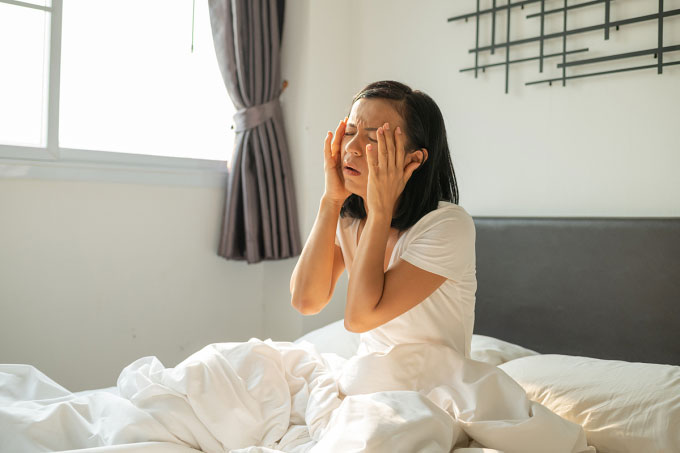Many people experience sleep disturbances during the summer due to the phenomenon of longer days and shorter nights, which reduces the body’s production of sleep-inducing hormones.
According to data from 28,000 Americans collected over 500,000 nights by Sleep Score Labs, summer sleep times are significantly longer. This may be due to school and work breaks, gatherings with friends, and the longer daylight hours.
During the summer solstice, the body produces fewer important hormones that help keep us alert, such as melatonin. With the sun setting later, the summer light can trick the brain into thinking it is still daytime. These light signals alter the circadian rhythm, causing the brain to delay the release of the necessary melatonin.
“Light is a crucial factor for the human circadian rhythm, determining the timing of melatonin secretion from the pineal gland. Melatonin is essentially the ‘darkness hormone’, released when the sun sets to usher in sleep,” explains Nate Watson, Chair of the Sleep Advisory Council at Sleep Score Labs.
According to Dr. Elie Gottlieb, exposure to more outdoor light during the summer can mislead the brain, causing it to default to the idea that it is still daytime. This can disrupt the circadian rhythm, leading to later bedtimes and wake-up times.

Many people experience sleep disturbances in summer. (Image: Freepik)
Data from Sleep Score Labs shows that the average sleep duration for Americans has decreased by 10 minutes during the summer months, from 6 hours and 12 minutes to 5 hours and 59 minutes.
While 10 minutes a day may not seem significant, over the course of three summer months, each person sleeps approximately one hour less per week. “Rising temperatures, combined with daytime activities, impact each person’s sleep and rest time,” Dr. Watson notes.
The quality of sleep in summer is also affected. Typically, experts assess sleep quality by comparing the total time spent in bed to actual sleep time. The larger the gap between these two periods, the lower the sleep quality.
According to scientists, in ideal sleep conditions, actual sleep time should account for 85% of the total time spent lying down. For Americans, this ratio decreased from about 80% in November to 78% during the summer solstice in June, hovering around 77% in July.
The phenomenon of shorter nights and longer days in summer most significantly impacts the sleep of older adults. During the summer solstice, those over 60 years old see the greatest reduction in average sleep time. Conversely, younger Americans tend to wake up the latest in the morning. Individuals over 60 sleep nearly 40 minutes less each night compared to those under 30 during the summer solstice.
“The duration and quality of sleep change significantly throughout our lives. This is quite normal. When older adults experience changes in their sleep cycles, they often sleep less, divide their sleep into multiple segments each night, and wake up earlier in the morning,” Dr. Gottlieb explains.
There are several methods to maintain deep, quality sleep during the summer. First, scientists recommend adhering to a consistent sleep schedule, making an effort to go to bed at a specific time each day. Keeping the bedroom at the lowest possible light level can also stimulate the brain to produce melatonin, making it easier to fall asleep.


















































